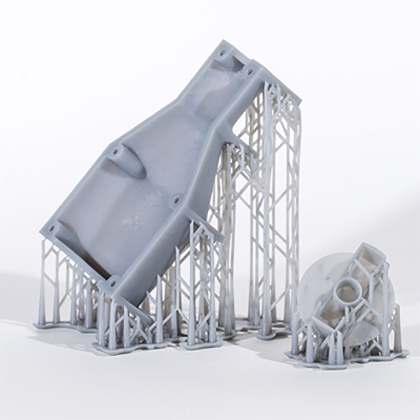In recent years, SLA 3D printing services have emerged as a game-changer in the field of product design. This innovative technology has revolutionized the way products are conceptualized, prototyped, and manufactured. With its ability to create highly detailed and complex designs, SLA 3D printing has opened up new possibilities for designers and engineers. Let's explore how SLA 3D printing services are transforming the world of product design.

Enhanced Design Freedom
One of the key advantages of SLA 3D printing services is the enhanced design freedom it offers. Traditional manufacturing methods often impose limitations on design due to the constraints of molds and tooling. However, with SLA 3D printing, designers can create intricate and complex geometries that were previously impossible to achieve. This newfound freedom allows for the creation of unique and innovative designs that push the boundaries of traditional manufacturing.
For example, imagine designing a product with intricate internal structures that improve its performance. With SLA 3D printing, these complex geometries can be easily realized, enabling designers to optimize the functionality and efficiency of their products.
Accelerated Prototyping Process
Another significant impact of SLA 3D printing services is the acceleration of the prototyping process. Traditional prototyping methods often involve time-consuming and costly processes, such as CNC machining or injection molding. These methods require the production of molds or tooling, which can take weeks or even months to complete.
With SLA 3D printing, designers can quickly turn their ideas into physical prototypes. The speed and efficiency of SLA 3D printing allow for rapid iterations and design refinements. This accelerated prototyping process enables designers to test and validate their concepts more effectively, reducing time-to-market and overall development costs.
Improved Product Functionality
SLA 3D printing services also contribute to improved product functionality. By leveraging the capabilities of SLA 3D printers, designers can incorporate intricate details and precise features into their designs. This level of precision enhances the overall performance and functionality of the final product.
For instance, in the medical industry, SLA 3D printing has enabled the production of customized implants and prosthetics. These personalized solutions perfectly fit the patient's anatomy, resulting in improved comfort and functionality. SLA 3D printing has also been used to create intricate and lightweight components for aerospace applications, enhancing fuel efficiency and performance.
Cost-Effective Manufacturing
SLA 3D printing services offer cost-effective manufacturing solutions, especially for low-volume production. Traditional manufacturing methods often require expensive tooling and setup costs, making small production runs economically unviable. However, with SLA 3D printing, products can be manufactured on-demand, eliminating the need for tooling and reducing production costs.
Furthermore, SLA 3D printing allows for the consolidation of multiple parts into a single component. This consolidation not only simplifies the assembly process but also reduces material waste and lowers production costs. By optimizing the design for SLA 3D printing, manufacturers can achieve significant cost savings without compromising on quality.
SLA 3D printing services are revolutionizing product design by offering enhanced design freedom, accelerated prototyping, improved functionality, and cost-effective manufacturing. As this technology continues to evolve, we can expect even more exciting advancements in the field of product design. Embracing SLA 3D printing opens up a world of possibilities for designers and engineers, enabling them to create innovative and groundbreaking products.



